Resources
COVID-19 Free Resources: Personal Finance Management for the Community
A home for helpful financial resources during COVID-19. Click here for Spanish version.
This is an unprecedented and stressful time for many Americans. We share your concerns over the uncertainty around COVID-19 and the impact it will have on the economy, and millions of Americans’ personal finances.
We hope you find the following resources valuable. Our team of financial coaches have been working hard to gather the best tips and resources out there, and as we find them day by day, we will post. Learn more about our cash relief work with Humanity Forward and SaverLife.
COVID-19 Resources
- Statement from Justine Zinkin, CEO of Neighborhood Trust Financial Partners, on Neighborhood Trust’s COVID-19 Response.
- Small Businesses: Need a Loan to Get through the Coronavirus? Consider a Credit Union.
- New York City Resources to Help People Impacted by the Coronavirus Epidemic.
- Generalized National Resources to Help People Impacted by the Coronavirus Epidemic.
- What You Need to Know about the CARES Act.
- National Housing Relief and Assistance to Help People Impacted by the Coronavirus Epidemic
COVID-19 Stories
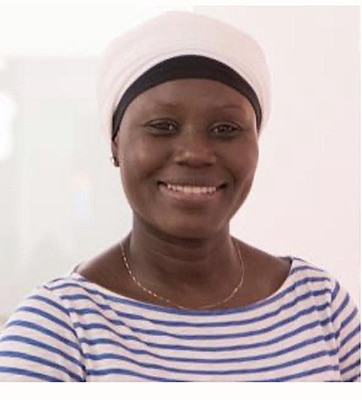 Small business owner navigates coronavirus and financial freefall–all while expecting
Small business owner navigates coronavirus and financial freefall–all while expecting
This Bronx business owner was expecting a new member to the family, but never thought she’d be facing a pandemic.
Welcoming a new baby in the time of coronavirus is scary enough. But for pregnant mother Nade Coulibaly-Doucore, who is expecting her third child next month, concern for her health and her baby’s is compounded by the sudden financial freefall that is threatening her family. Coulibaly-Doucore, who lives with her husband and her two children (3 and 24) in the Bronx, runs her own cleaning business with two employees. When the coronavirus crisis hit, Nade’s income disappeared overnight. No longer able to pay her employees, she soon found she couldn’t even cover her own expenses.
“With the crisis, the offices we usually clean are all closed. They owe me money, but no one is paying me….I am almost due, and I don’t have money to get the things I need for my baby.”
Nade’s husband, a taxi driver, is also unable to work during the crisis. Nade is terrified she will have to give birth alone, since her OB/GYN told her that her husband would only be able to join her in the delivery room if he shows no signs of illness; the family is doing their best to stay healthy while living in the heart of the pandemic. With so much to worry about, Nade and her husband’s complete and unforeseen loss of income is an untenable burden.
However, in spite of the intense pressure they are under, the couple is striving to stay positive, for the sake of the family. “We are really trying to create a good environment for all of us. When everyone is home, you wake up together, you go to sleep together, you’re always together. So we are trying to not make it stressful for everyone,” she said.
In addition to trying to care for her own family, Nade is concerned about her employees. She is trying to enroll in the paycheck protection plan in order to get them financial relief. “It wouldn’t even be for me, I would just use it to pay them. I really hope it works out… I have been so busy working on the application,” she said.
Nade is optimistic that once the crisis blows over, she will be able to return to cleaning and ensure a strong future for her family, including the new addition. “My hope is that my clients will pay their outstanding bills, and once this is over I can get more clients and contracts, and keep growing the business,” she said.
Until she can get back to work, Nade is stretching her dollars to provide for her family. Nade’s been working with her financial coach, Tiffany, to identify resources for her and her family that she now qualifies for, like expanded unemployment benefits through the CARES Act or WIC. They’ve also been identifying ways to free up her limited cash for necessities, like negotiating with her lenders to defer payments.
Andrew Yang and Humanity Forward partnered with Neighborhood Trust and SaverLife to disburse a $1,000 payment to Nade and many other Bronx residents. The money was enough to pay rent for the month, with a little left over for essentials. “All of us who received the payment, it made a really positive impact on our lives. Whether you use it for rent, electricity, or groceries–it just takes the weight off our shoulders a little bit,” she said. In the current crisis, the support is truly saving lives with crucial funds that keep families in stable homes and enable small business owners like Nade to provide for their children.
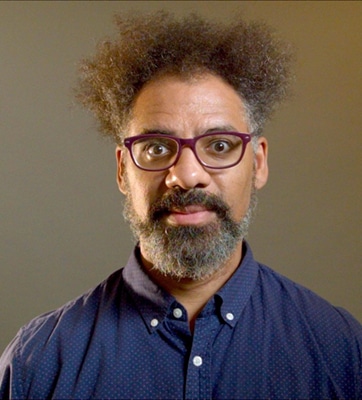 There are now over 110,00 confirmed cases of COVID-19 in the city of New York, in every borough. David Simpson, his father and his stepmother are three of them.
There are now over 110,00 confirmed cases of COVID-19 in the city of New York, in every borough. David Simpson, his father and his stepmother are three of them.
David and his family, all highly involved members of their Bronx neighborhood, were hit with the virus weeks ago and are only now beginning to recover–but their lives are still upended by COVID-19. David, a freelance videographer, lost his income when the crisis hit, and was unable to buy the essentials he needed to heal, like groceries and medicine. David’s main client, the Legal Aid Foundation, hasn’t had much work for him since the courts are shut down. David’s stepmother runs a service agency for the disabled, and several of her staff members are unable to work due to illness.
David’s father and stepbrother are both pastors, and with no Sunday services, the churches they run have not received their usual donations from members. David and his father were able to secure extensions on certain payments, like insurance and utilities. However, the family remains concerned that they may lose their housing, the parsonage of David’s father’s church. “This is a community of working poor. People are living check-to-check. We’re all out of work, so people can’t give. It’s all up in the air about whether we can continue maintaining the property.
David has tried to file for unemployment–newly expanded for independent contractors like him during the coronavirus crisis–but there is such high demand that he hasn’t been able to get through. “I applied and spent the next two weeks trying to get through to the phone lines. I have been unsuccessfully trying to finish my application.”
Because there are so many applicants for unemployment, rather than leaving callers on hold, the unemployment office is actually automatically ending calls due to overload. When the unemployment office did finally call back, David wasn’t at his phone and missed the call, leaving him with no recourse but to try again with the same automated system.
On top of the mounting stressors of daily life without income, David is concerned his father may need longer term, and expensive, medical care. David’s father, who is in his mid-seventies, experienced neurological complications from COVID-19, including two seizures.
David and his family need support to survive the crisis, which could leave them with little to no income for months. Andrew Yang and Humanity Forward partnered with Neighborhood Trust and SaverLife to disburse a $1,000 payment to David to help him care for himself and his family. David used some of it to cover his groceries and pay his cell phone bill, and he donated half to his stepbrother’s church. “I wasn’t expecting to receive this money, so it felt important to me to share it and distribute to the community. I am so thankful because without this, I would be at $0 in my bank account right now,” said David. Now, David has a few hundred dollars to help him cover his basic needs, and so does his stepbrother.
Surviving a serious illness–especially one that hits multiple people in one family–is exhausting and even terrifying. It shouldn’t be financially crippling, too. Until David and his family are back on their feet, we are glad we could help.
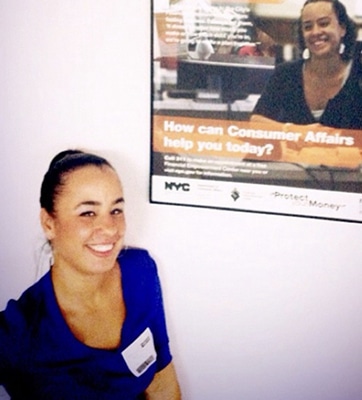 Lessons from a Financial Coach: 9/11 Prepared Me to Help Others Financially Impacted by COVID-19
Lessons from a Financial Coach: 9/11 Prepared Me to Help Others Financially Impacted by COVID-19
My experience fuels me to empower and motivate others to make smart financial changes
Every day, I use my personal finance journey to help support and provide insight into my financial coaching clients. I draw on the panicked feeling of “how am I going to provide for my family,” that I went through after 9/11, where I worked on the 10th floor of the South Tower.
Today, I see my story in clients who are getting hit hard by this crisis. They’re worried about their finances, along with their health and the health of their colleagues and loved ones. Some are even having to make hard choices between their health and their income. Many are already poignantly aware of the financial risks ahead of them, of losing their home, not paying utilities, or getting lost in credit card debt. They don’t want any of it to happen but they don’t know what they can do to prevent it.
Having my personal financial journey affected by 9/11 taught me the importance of financial health. Being a single mom to a 6-year-old at the time lit a fire in me to seek and utilize all of the resources available to ensure we had food on the table and a roof over our heads. Seeking resources and navigating systems like unemployment and SNAP left me with nuggets of information that I try to share with my clients, my family, my friends — anyone who needs it. It also serves as an important source of empathy required as a financial coach: I truly can understand what my clients are going through, which fuels me to empower and help motivate others to make smart money moves.
Since the stay-at-home order began in New York, my clients have fallen into three categories: 1) those who are financially impacted by the coronavirus and facing job losses, furloughs, or salary reductions, 2) those who are fortunate to be able to work from home and using this time to repair their credit or prepare for the future, and 3) those who are considered essential workers and risking their own health each day while continuing to work and provide for their families.
I recently met with a client who worked at Marriott for 18 years but was recently furloughed. I had to walk her through what resources she may qualify for now, like unemployment and SNAP benefits, how to apply, and what additional resources to look out for or that are still coming. But having coached people for almost 13 years — and having been in her shoes — guiding her through the process was automatic for me.
Some clients — and even family and friends — aren’t losing their jobs, but their salary is getting temporarily cut by 30 to 50%. That’s one thing that’s different between 9/11 and now; people aren’t only being formally laid off. More companies are cutting salaries temporarily or indefinitely to try to prevent layoffs.
Other clients who are fortunate enough to work from home and have more time on their hands are preparing for the future. They’re looking to tap into resources like small business loans or personal loans to help launch a new business. They’re using this extra time at home to work on improving their credit so they’ll be in a better position financially when all of this is over.
Then there are others who are essential workers on the frontlines of the crisis. They’re nurses who are risking their health and their lives to help others. Despite all of the chaos happening in the world right now, they’re still focused and motivated to pay down their debt and improve their credit scores. They do this all while making difficult financial tradeoffs in the middle of it, like whether to take a hazardous pay contract or keep a union job to maintain job protections and health insurance.
Just as I did after 9/11, I’m waiting a while for the dust to settle. I expect more resources to become available and have been researching daily to see what’s new so I can keep my clients informed. The government response has been slower this time, likely because of the sheer number of people impacted rather than just one day, this crisis is rolling out over weeks and months, with no end in sight. These are still only the early days of the financial crisis; I anticipate that clients will likely come in with bigger crises down the line. Being unemployed, they’ll be looking for additional ways they can cut down on expenses and stretch every penny.
Although times are tough right now, I still remain hopeful. Despite how horrifying 9/11 was, the one beautiful thing that came out of it was the way we all came together. Even as the towers were falling and we were in the basement of a nearby building, everyone worked together. It was like a quiet storm. And nobody was left behind.
In times of crisis, everyone comes together — as New Yorkers do because we are New Yorkers — helping each other. And we’ll get through this together, too.
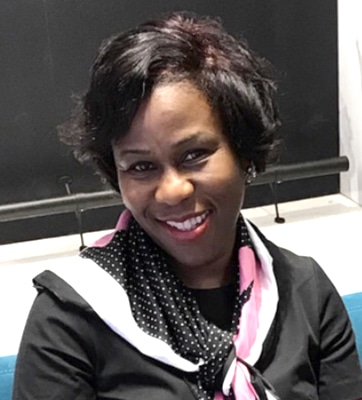 Protecting her and her family’s health — at the cost of their financial health
Protecting her and her family’s health — at the cost of their financial health
Cancer survivors relying on savings to get through the coronavirus crisis
Colette and her husband are resilient — they are both cancer survivors. But they weren’t expecting to ride out a pandemic, too.
Colette’s husband beat prostate cancer in 2016, and Colette herself beat lung cancer. They have five children — four adult daughters, and a 14-year old son still at home with them in the Bronx. They’re both high-risk for coronavirus, due to their histories of cancer, and Colette is especially vulnerable to respiratory illnesses. The family is doing their best to stay safe — going as far as isolating themselves mostly to separate rooms except for mealtimes — but they’re still very concerned. They have not been able to see their older daughters or their grandson since New York was hit with the virus.
“It’s actually terrifying. I don’t sleep well at night. I wake up most mornings really early and try to take a walk before it gets populated on the street. I am thinking that might help me sleep at night, but it really doesn’t…I have awful dreams. My fear is not being able to breathe,” she said.
On top of their concerns for their health and wellbeing, financial concerns are weighing heavily on the Colette and her husband, who are currently both unemployed. It’s not safe for Colette’s husband, an electrician, to work in other people’s homes during COVID, especially considering that both of them are high risk. Colette was laid off in October of last year, receiving limited unemployment benefits. Her husband has been unable to get his unemployment application through, and finances are tight as the family’s savings dwindle. In the meantime, Colette received a $1,000 emergency cash payment from Andrew Yang and Humanity Forward through a partnership between Neighborhood Trust and SaverLife to help her family survive the crisis.
Colette used some of the funds to pay for their home’s cable and internet service, so their son could complete his online learning schoolwork. She also bought groceries both for her family and for her 85-year-old mother, who she makes meals for about three times a week and sends over in an Uber. The rest of the money she has saved for any other needs that might come up. Colette has already written a thank you note to Andrew Yang.
“I thought this was so generous. It’s a wonderful thing. I really hope it gets to him because it is important to say thank you.”
In spite of the challenges she is currently facing, Colette has big plans. She has recently had several job interviews and is hopeful to be starting a new job soon. And a few years from now, she has an even sweeter vision:
“I am fifty-five now, and in five years I will be sixty. God willing, I want to open in a little ice cream shop, in my neighborhood in the Bronx.”
Facing a Health and Financial Crisis Simultaneously
The hairstylist is recovering from coronavirus and worried about paying her bills
April has been a very long month for Randy. She fell ill with the coronavirus over three weeks ago and hasn’t been able to leave her apartment since. “I am quarantined both because I am sick and because I don’t want to get anyone else sick. So I have to stay in,” said Randy.
She is too tired to do much more than read and sleep; she doesn’t have much of an appetite but tries to force herself to eat citrus fruits and soups to strengthen her immune system. Randy can’t go to the grocery store, so friends drop off food for her. The oranges she hoped for are sold out everywhere, but they bring lemons and limes which she eats in spite of the sour taste because she needs vitamin C.
Randy needs to focus on healing, but she is preoccupied — she’s a hairstylist, and the salon where she works is shut down completely, meaning that even once she is better she may not be able to work. As a contractor, Randy gets no sick pay. She is nervous about affording her rent and her taxes, and surviving the crisis financially because she doesn’t have much savings to fall back on.
“As a contractor, it’s hard to save money, because the amount you make every day or every week is different. There’s no set salary,” said Randy.
Before the pandemic, Randy had been working with her financial coach Jeffrey to pay down credit card and student loan debt to improve her credit in preparation for launching her own business. But now, Randy’s small savings was drained by trying to get the supplements and medicines she needed to fight the virus.
“What money I had, I used to buy the things I needed. Because I wanted to get well, and hopefully stay well.”
Randy tried to file for unemployment, but her claim is in limbo — the phone lines are still too jammed to process all the applicants.
“I filed on the 15th of March, and I just heard from the unemployment office,” said Randy.
Thankfully, Andrew Yang and his nonprofit Humanity Forward partnered with Neighborhood Trust and SaverLife to disburse a $1000 payment to Randy to help her ride out the crisis.
“I was able to pay my landlord for March since it was due at the end of the month, and that was a huge relief…that took a weight off my shoulders.”
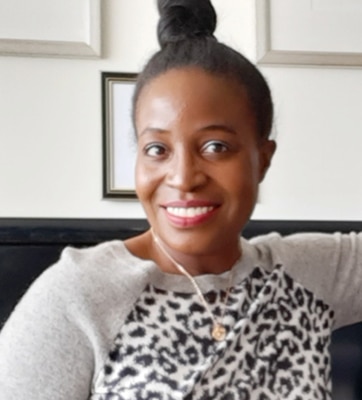 No Inventory to Sell, No Income, and Expenses Piling Up
No Inventory to Sell, No Income, and Expenses Piling Up
The online clothing reseller is trying to survive until stores reopen again
COVID-19 has forced businesses all over New York — from restaurants to retail — to shut down for the foreseeable future. Unfortunately, that includes the stores where Kimberly Hall sources all the inventory for her online clothing business.
“I am an online reseller. I resell predominantly women’s and men’s, and some kids, designer clothing, accessories and shoes. I source most of my inventory from existing retail establishments, sometimes from Goodwill or Salvation Army or even Macy’s,” she said. All of the usual places Kimberly shops for her inventory have had to close down, leaving her with no way to replenish her stock.
“I remember the day exactly, March 17th. I was shopping for inventory, and the manager of the store asked everyone to come to the front. They announced that this would be the last day open, until further notice. It’s been very difficult as far as replenishing inventory. I have really had to think outside the box,” said Kimberly.
With no inventory to sell, Kimberly receives no income, and can’t pay her expenses. In addition to her lack of stock, Kimberly’s overall sales have plummeted due to the economic recession. “People have lost their jobs, or they’re furloughed, or they’re very nervous about whether they will still have a job. So luxury clothing is not at the top of their priorities,” she said.
Kimberly tried to apply for unemployment, which has been expanded in New York to include small business owners. But she first applied three weeks ago, and is still navigating the process to receive benefits. While waiting for her unemployment, Kimberley received a $1,000 disbursement from Humanity Forward through a partnership between Neighborhood Trust and SaverLife. “I am so thankful for the grant, because it really was needed and came just in time,” she said.
“Anyone who does what I do, we pay selling fees. The more you sell, the higher the fees. So I used some of it to pay my selling fees,” said Kimberly. Kimberly also used some of the payment to pay her cell phone bill; she often uses her cell phone for business as well as keeping in touch with family and friends since she lives alone. The rest, Kimberly put into her savings account.
“I have just reserved the rest, since I have yet to receive any other financial help and my business is just a trickle right now. I can’t spend it all at once, even for necessities.”
As a small business owner, Kimberly is used to riding out tight times, but the COVID crisis has been especially challenging. “I am still maintaining my business as best I can. The minute the stores open back up, I will be the first in line,” she said.
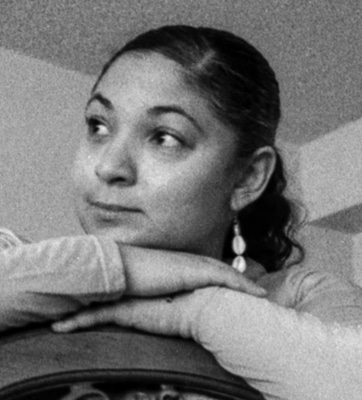 Helping Her Grandmother, Her Community, and Herself Survive the Coronavirus Crisis
Helping Her Grandmother, Her Community, and Herself Survive the Coronavirus Crisis
The community activist and small business owner battles the emotional and financial toll of the pandemic
Ramona Ferreyra is a community activist and small business owner committed to making a difference in the Bronx neighborhood where she lives. From sourcing masks for essential workers to bringing medicine to sick neighbors, Ramona has used her skills as a community organizer to help everyone around her ride out the COVID-19 crisis. But for Ramona to be able to aid others, she needs support herself.
Ramona and her grandmother, 89, live together in a one-bedroom apartment. Chronic health issues have made it impossible for Ramona to work in most traditional jobs, so they rely on sales from Ramona’s clothing business, Ojala Threads (baby and children’s clothes inspired by her Hispanic heritage) and some government support to survive. But with the COVID-19 crisis, Ramona’s sales have dropped dramatically, and she had to cancel all her pop-up events. Ramona and her grandmother’s food stamps ran out weeks ago, and their situation was beginning to feel dire.
“One of the frustrating things about the work that I do in the community is that there is a system set up where you are expected to do the work because you know it’s important, but you’re not paid for it,” said Ramona. Ramona loves the activism work that she does, but it doesn’t support her financially. With direct support from Andrew Yang and Humanity Forward through a partnership between Neighborhood Trust and SaverLife, Ramona received a direct $1,000 payment to help her feel a little more secure and get back to doing what she does best: building a better future for her community.
“[The payment] was life changing,” said Ramona. Ramona used some of the funds to make two credit card payments to pay down some of her debt. She also plans to invest in some Google and Facebook ads for Ojala Threads, a marketing strategy she couldn’t afford before. The rest of her payment she put in the bank, to help her and her grandmother ride out the next few months of the crisis.
It was also important to Ramona to purchase small items, like essentials for her pets—her dog Brownie and her rabbit—and some supplies to make things a little easier for her and her grandmother, including a new can opener and a steam mop. “They’re small things, but they mean a lot. They’re a super big deal.”
“At a time like this, when we have lost three neighbors just in this building…I am already so emotionally exhausted that with the added weight of being poor, there was a time that I wasn’t sure I was going to make it through this because of the financial pressure. And that $1,000, for someone who is used to living on $190 a month–that will last me like three months. For me, this is like a quarterly investment. Look at everything I can accomplish with that money.”
An Active Handyman Service on Pause due to COVID
Small business owner focuses on family, relies on savings until he can work again
Catalino has a simple and effective business model called Handyman120—for $120, he will do anything that needs to get done in a home over the course of six hours, from plumbing to electrical. The business was growing steadily—until the novel coronavirus hit New York City. Now, it’s not safe for Catalino to enter people’s homes, so he’s been unable to work for weeks. He’s spending plenty of time with his young daughter, Catariey, in their apartment in the Bronx. But he’s worried about caring for her needs and supporting his wife, Ariel, who is working on the frontline in a nursing home.
“I wish it were me out there. I am really protective of them. But I thank her every day, for going out there and doing it,” said Catalino.
Even with Ariel working, the loss of Catalino’s income has hit the family hard. They are leaning on Catalino’s savings, which he has been trying to build up as he grows Handyman120. “I had a system set up with my business, where I saved 10% for myself. For every day that I worked, I made $120, and I would save $12. And I did that for everything. So if it was a $700 job, I saved $70.”
Catalino is doing his best to provide everything Catariey needs to learn, grow and stay healthy with his limited savings.
“We are trying to be serious about our diet, and eat healthy to boost the immune system,” said Catalino. With so much time at home, Catalino has been making new recipes for his family. But their savings are dwindling, especially because a few weeks ago Catariey got sick and needed antibiotics. Catalino tried to apply for unemployment benefits and a Small Business Administration loan, but hasn’t yet received either.
Catalino received a $1,000 payment from Andrew Yang and Humanity Forward, through a partnership between Neighborhood Trust and SaverLife, to help him provide for his family through the crisis and keep his business afloat. He used it for essentials like fixing his car, buying groceries, and purchasing a new set of scrubs for Ariel to use at work. Catalino also paid the fee to keep his website online. He’s very grateful, and wants to pay it forward. “I want to donate to this fund, someday, when things are back to normal,” he said.
Catalino is working hard to keep Handyman120 viable through the crisis, and is looking forward to bringing on new clients once New York is open again. Soon, he would like to buy a home of his own for the family. “My wife and I, we want to get our credit up and buy a property. I would love to own lots of real estate. Not for me, but for who comes behind me. For my daughter,” he said.
In the News
- The Economist Universal basic income gains momentum in America
- Mother Jones The GOP Plan to Slash Unemployment Benefits Puts the Whole Economic Recovery at Risk
- Al Jazeera UBI: Is recession pushing the US towards permanent cash payments?
- Bankrate.com Survey: Nearly half of U.S. households have had incomes cut during coronavirus pandemic
- CityLab Stockton Extends its Universal Basic Income Pilot
- News 12 The Bronx Nonprofits team up to give $1,000 to Bronx families
- Forbes Fintech Apps Offer Financial First Aid For Hardest-Hit Consumers
- San Francisco Business Journal Here are resources nonprofits and private companies are offering amid COVID-19
- MarketWatch Wells Fargo Invests $1M in SaverLife and Neighborhood Trust Financial Partners to Disperse Financial Aid to Small Businesses Affected by COVID-19
- El Diario Andrew Yang ofrece $1 millón de dólares a familias afectadas en El Bronx, reafirmando rumores de que quiere ser alcalde
- The Breakfast Club Andrew Yang Announces He’s Giving $1M To The People Of NYC
- CBS News Andrew Yang’s nonprofit to donate $1 million to families impacted by coronavirus
- CNN Andrew Yang’s non-profit to spend more than $1 million to aid working families impacted by coronavirus
- New York Daily News Try universal basic income now, NYC: Andrew Yang says coronavirus makes the city an ideal testing ground for a bold idea
- Los Angeles Times Fear of coronavirus-tainted dollars opens a new front in the war on cash





